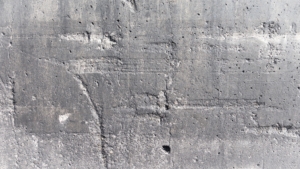6 Likely Reasons For Cracks in The Walls of Your Home
Walls, whether they are concrete, brick or drywall are scarcely noticed until there is something wrong – especially if there are visible cracks that were never noticed before.
Thankfully most cracks, like those found in concrete, only suggest that the home is settling. However, different weather patterns, moisture and even UV rays can cause stress and strain on your walls. These cracks become more evident as they expand and contract, or as the materials dry.
However, in Rhode Island these cracks aren’t always benign and can be a symptom of foundation damage, water leakage, and more. In this article, we will discuss the likely reasons there are cracks in the interior and exterior brick walls of your home and if they are dangerous.
1. Cracks in Walls Due to House Settling
This is the most common reason for cracks in walls in Rhode Island, especially if your home is new, or if you live in an area with expansive soils. When the soil around your foundation expands and contracts due to changes in moisture and temperature it puts pressure on your home’s foundation. This can cause cracks to form in your walls as your foundation settles.
A setting house means that the weight of your property is being distributed in the soil, i.e., some parts of your property may be sinking ever-so-slightly. This is not dangerous unless the cracks continue to grow or become too wide.
For a newly built house, it can take several years for the house to stabilize, after which you can simply fill the cracks and paint over them to remove them entirely.
2. Poorly Compacted Fill Dirt
Another common reason for cracks in the walls is poorly compacted fill dirt. When your home is being built the foundation is excavated and then backfilled with dirt. If this dirt is not properly compacted, it can settle over time and put pressure on your foundation, causing cracks to form in your walls.
A telltale sign of this issue is if the cracks in the walls are horizontal or stair-stepped. These types of cracks are usually caused by soil Settlement and are not a structural concern. However, you should still have them evaluated by a professional to be sure.
3. Cracked Walls Due to Temperature Changes
Temperature changes can also cause cracks in the walls. When the temperature outside fluctuates, it causes the materials in your walls (concrete, brick, etc.) to expand and contract. This can lead to small hairline cracks forming over time. With climate changes in Rhode Island and constantly differing temperatures over the years, you must be aware of the possible problems it could cause for your home’s foundation.
While these types of cracks, especially when smaller, are usually not serious and can be fixed with a little caulking or spackling compound, large or multiple cracks could be a sign of a more serious issue, such as a foundation problems.
4. Plumbing Leaks
Plumbing leaks are another common cause of cracks in walls. If you have a leak in your pipes, it can cause the surrounding soil to erode and settle. This can put pressure on your foundation and cause cracks to form in your walls.
Plumbing leaks can also cause moisture to build up in your walls, which can lead to mold and mildew growth. If you suspect a plumbing leak, it’s important to have it fixed as soon as possible to avoid further damage.
5. Cracks in the Walls formed by Improperly Installed Windows or Doors
Improperly installed windows and doors can also cause cracks in your walls. If these fixtures are not installed correctly, they can put stress on the surrounding structure and cause cracks to form. If not flashed or sealed properly they can invite water ingress and lead to structural issues and even health issues with mold and mildew.
It’s important to hire professionals to install windows or to avoid any potential issues down the road.
6. Foundation Problems in Rhode Island
Foundation problems can increase the risk of cave-ins or collapse in extreme circumstances, so it’s important to address foundation problems when first detected.
While your foundation may have been level and seemingly stable when the builder was finished, as a property settles over time serious issues can arise. The soil may not have been properly compacted around the entire foundation, water could be introduced by poorly installed doors and windows, leaking service lines, improperly installed gutters and downspouts, etc.
Damage to your foundation can lead to cracks, which in turn may impact the integrity of your walls. As your foundation weakens, the structure above starts to experience more stress and strain. The first symptom of a poor foundation is usually a crack in the walls of your home and is a sign you need to take action.
Cracks In The Walls – Time For a Foundation Contractor
If you see any cracks in your walls, it’s important to have them evaluated by a professional to determine the cause, as it can be a potentially life-threatening issue. If you’d like to have your walls, foundation repair, or other masonry work inspected or repaired please contact Set In Stone masonry contractors in Rhode Island.





